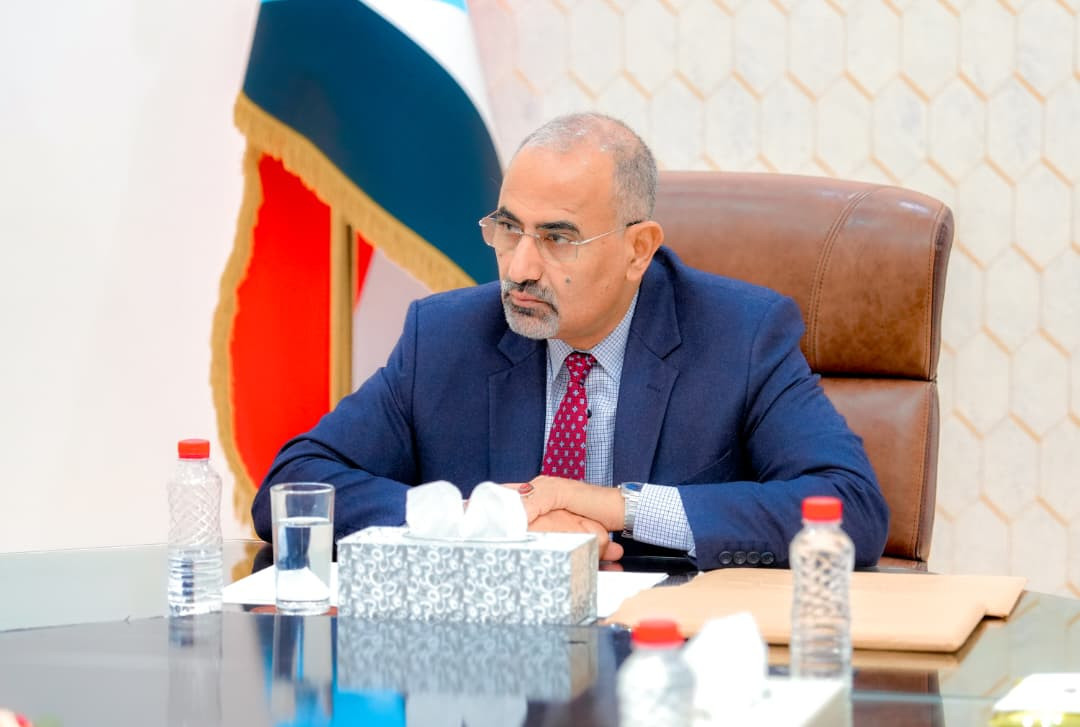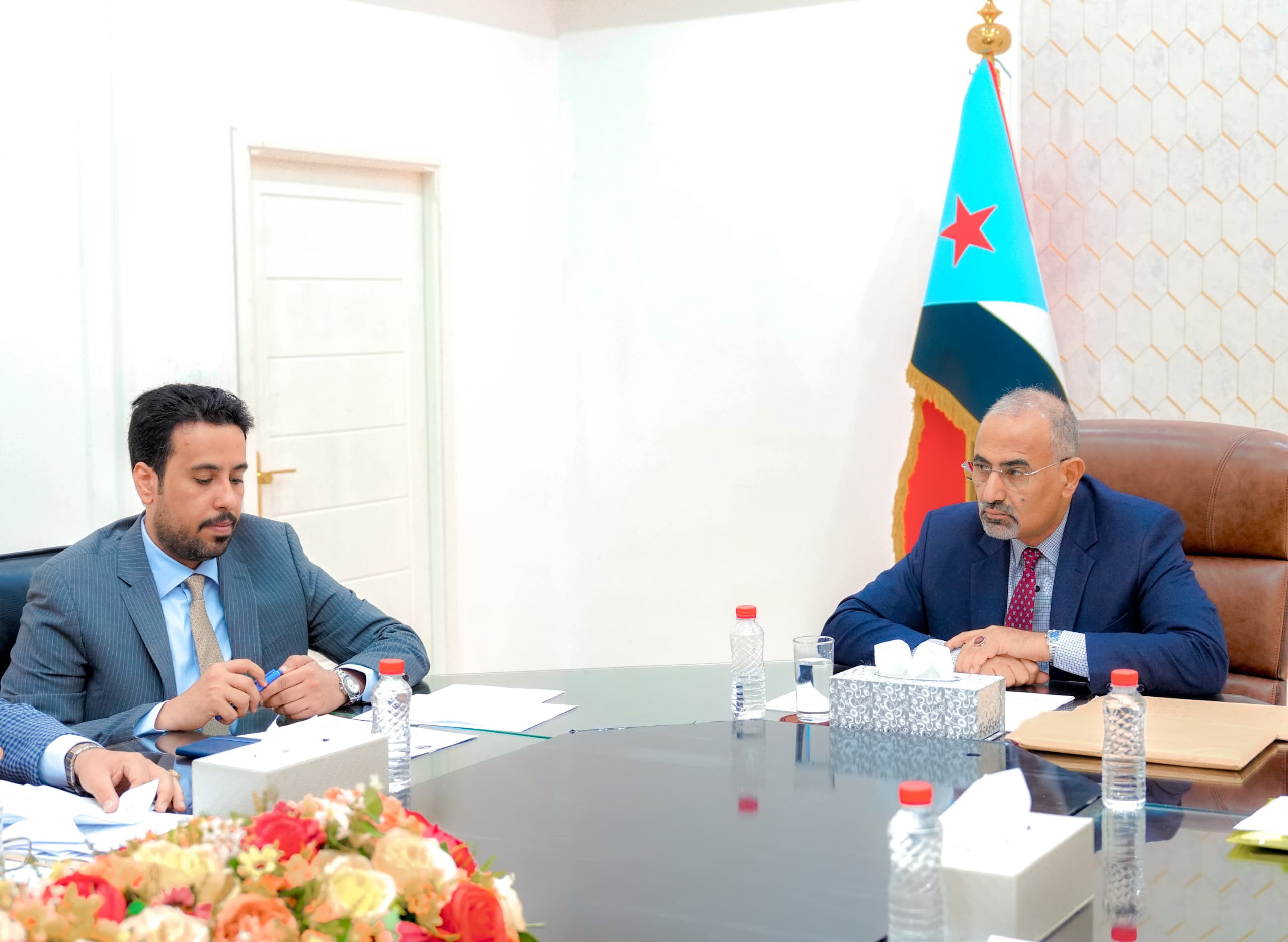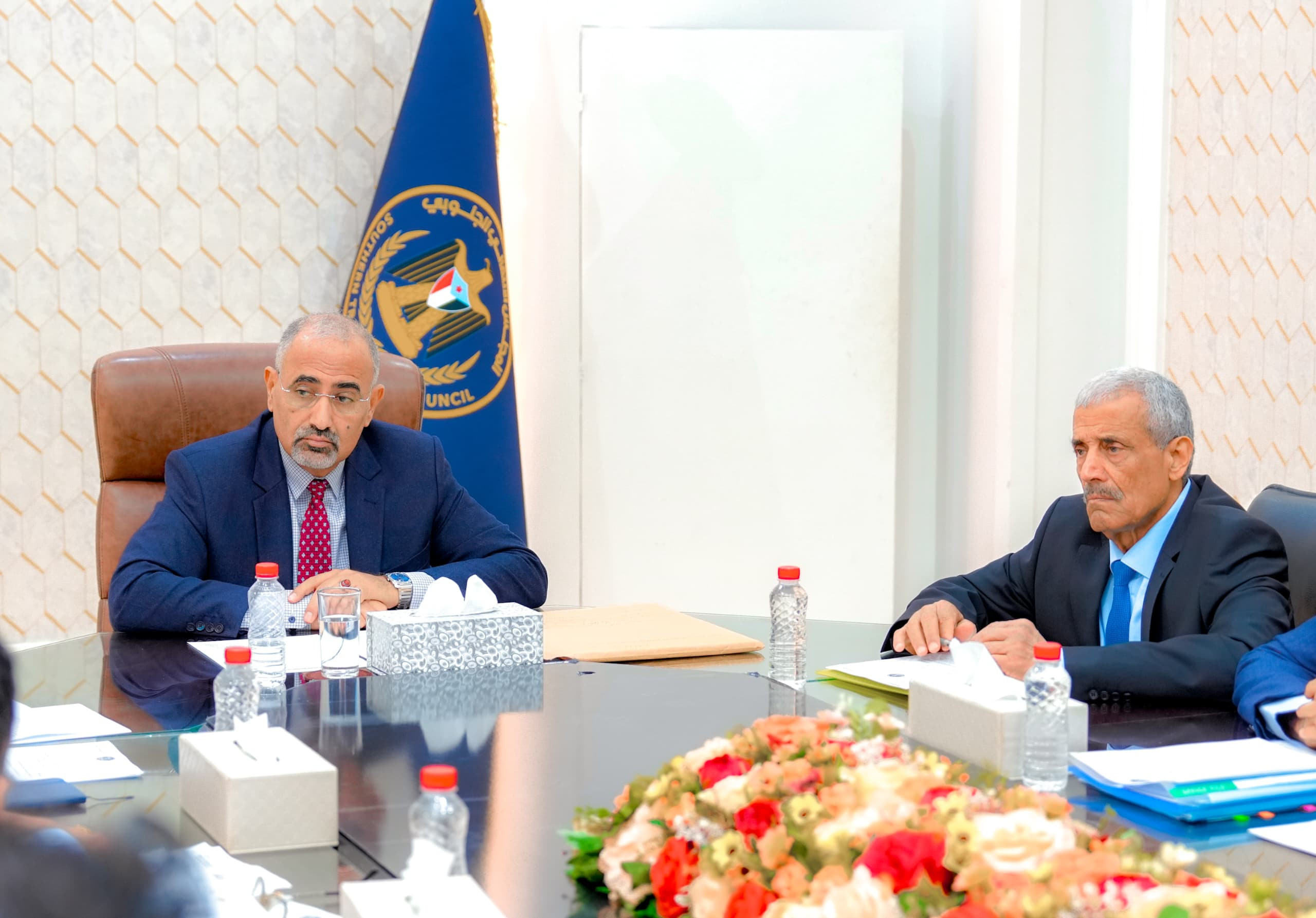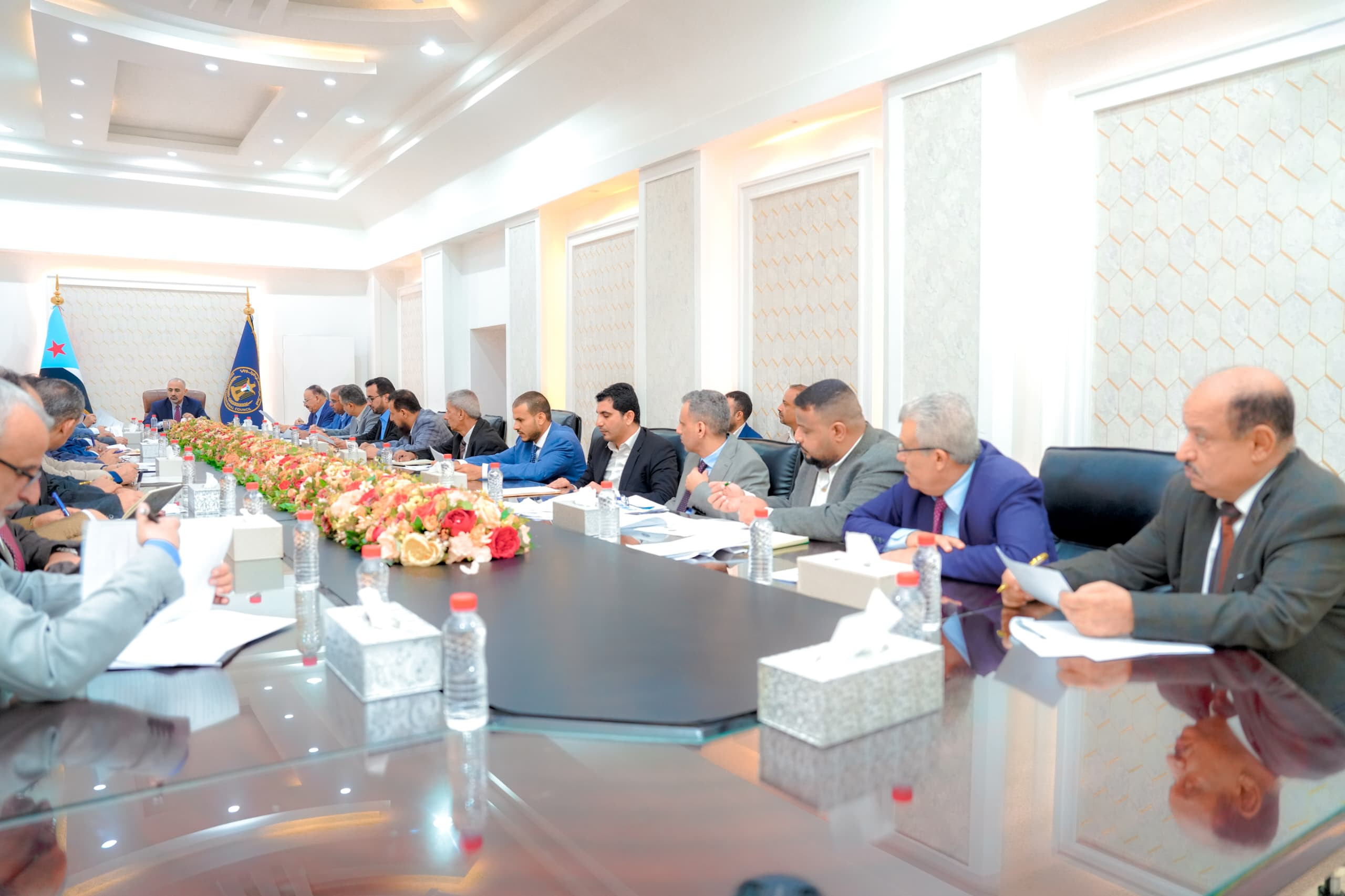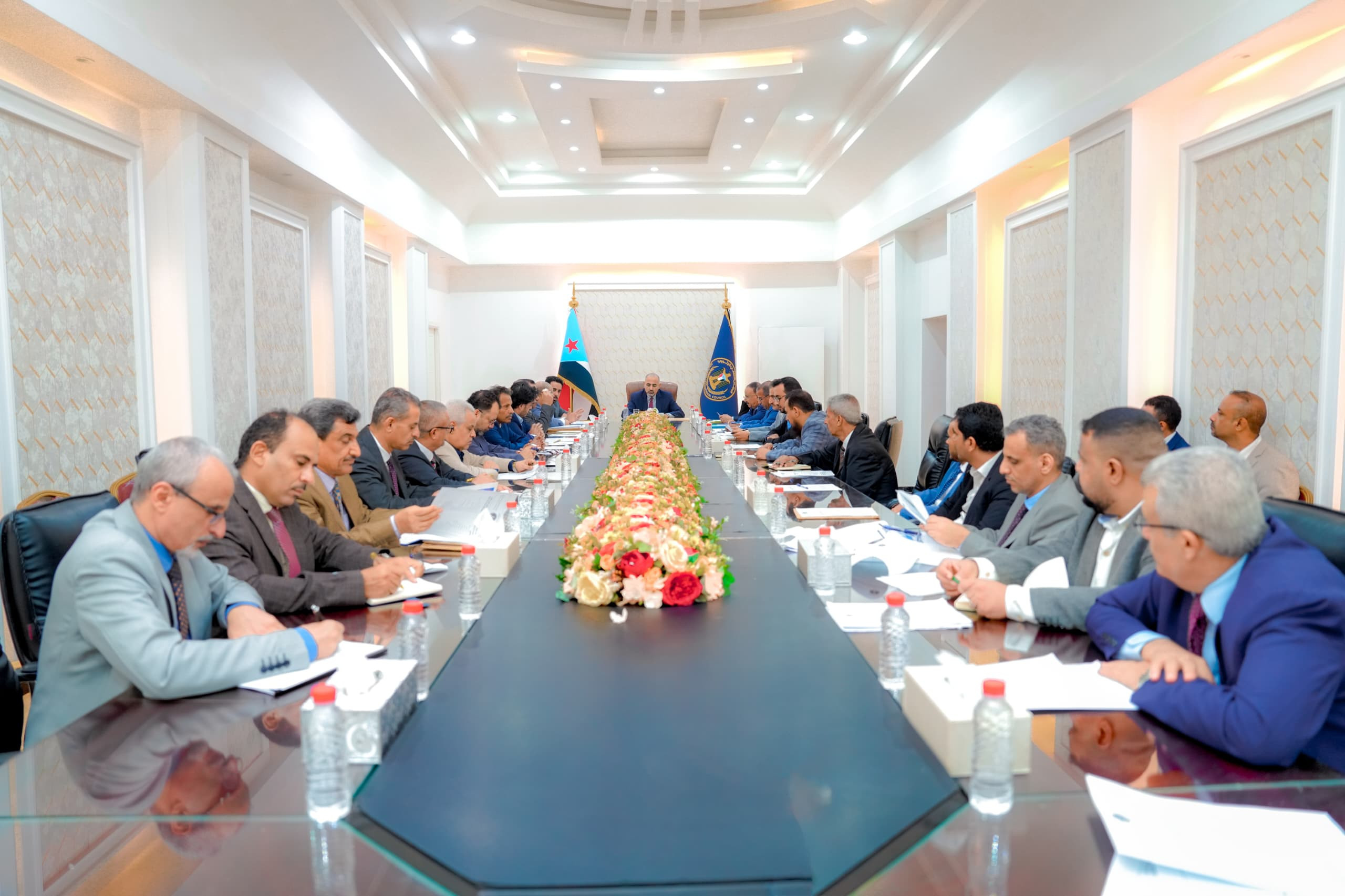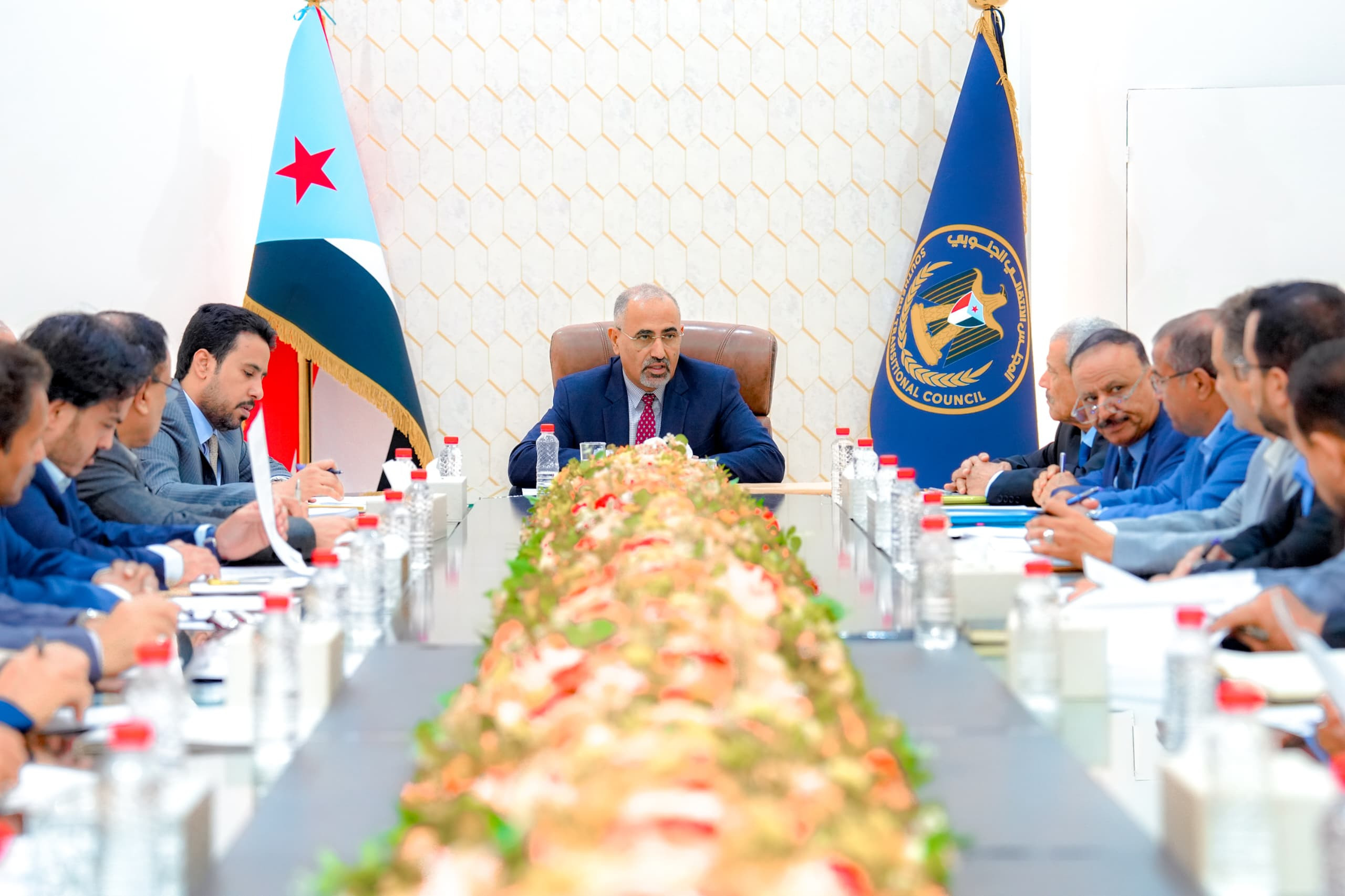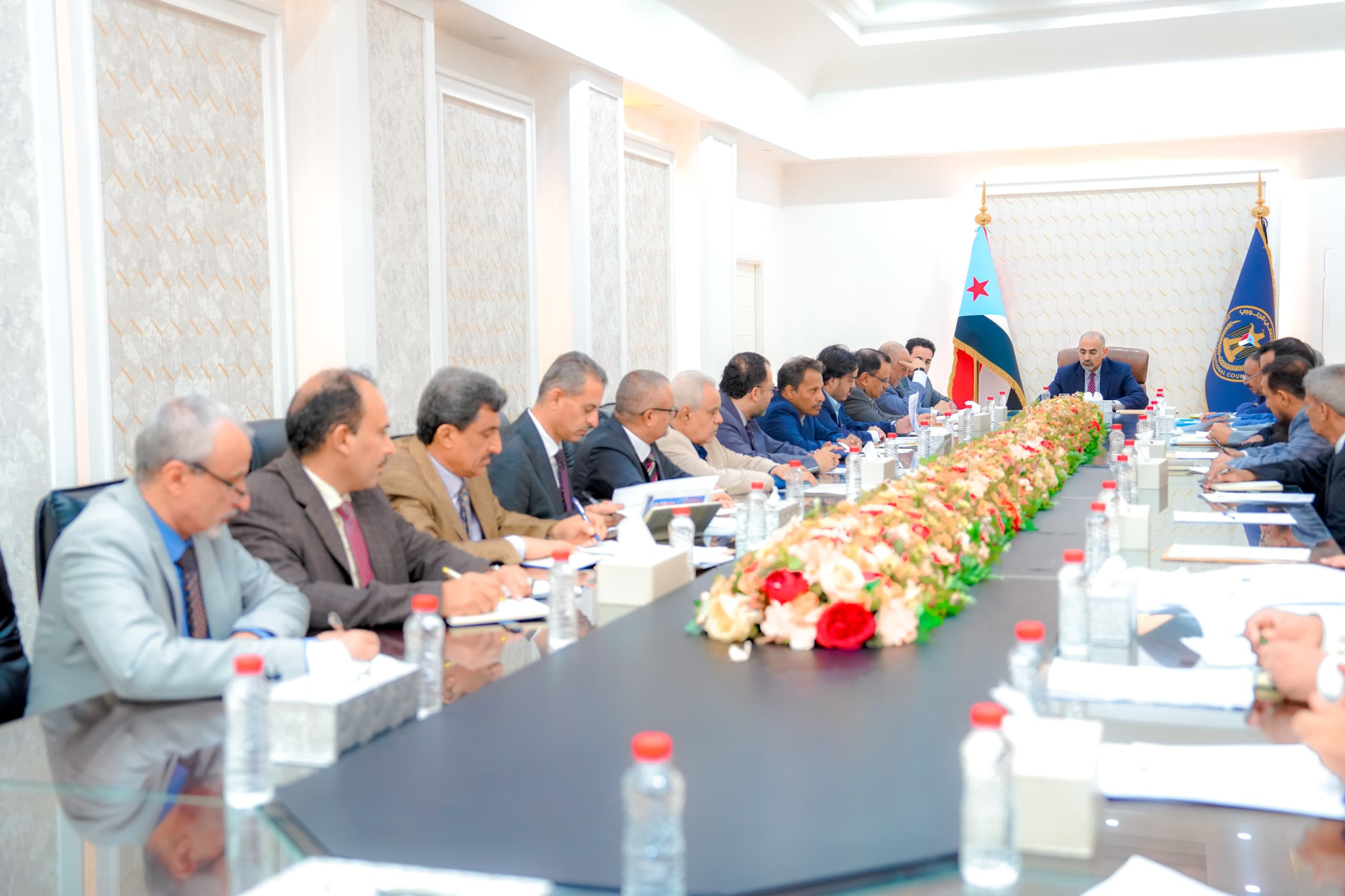Political Declaration Statement Issued by the Southern Transitional Council
Political Declaration Statement Issued by the Southern Transitional CouncilThe Southern Transitional...
The Supreme Executive Leadership of the Southern Transitional Council (STC) held its regular meeting on Saturday in the capital, Aden, headed by President Aidarous Qassem Al-Zubaidi, President of the STC.
The meeting reviewed ongoing preparations and arrangements for a series of local and international conferences related to economic and service sectors in the country, where a detailed report was presented by the Minister of Electricity, Eng. Mane'a Bin al-Nahdi, outlining completed preparations for the National Energy Conference, scheduled to take place in the capital, Aden, in mid-October under World Bank supervision and with international participation.
The report also highlighted measures taken by the Ministry of Electricity to secure fuel for power plants, operational plans for the next two months, and mechanisms to improve electricity service in the capital, Aden, and neighboring governorates, as well as plans to ensure power supply for the upcoming summer.
In this regard, President Al-Zubaidi stressed that electricity remains a top priority, emphasizing that stabilizing this service is the cornerstone for all other daily services for citizens, and reaffirmed that overcoming this challenge requires concerted efforts at both central and local levels.
In a separate context, the meeting reviewed a report by the Minister of Planning and International Cooperation (PIC), Dr. Waed Badheeb, summarizing preparations by the PIC ministry—in coordination with the Ministries of Social Affairs and Labour, Foreign Affairs, and the local authority in the capital, Aden—for an upcoming donor conference to be held with international sponsorship.
Furthermore, the Minister of Agriculture and Fisheries, Maj. Gen. Salem Al-Soqatri, presented a detailed report of what the ministry has accomplished in coordination with the PIC ministry of preparations for the International Food Security Conference, set to take place on October 27-28, 2025, at the headquarters of the Gulf Cooperation Council (GCC) Secretariat in Riyadh, which is expected to announce a series of projects aimed at enhancing food security in the country.
In another context, the meeting reviewed the ongoing preparations for the economic conference to be held in the capital, Aden, which will be launched in the upcoming period with the support of the local authority, where Governor Ahmed Lamlas summarized what has been achieved in this regard in coordination with the relevant stakeholders.
Meanwhile, the Deputy Minister of Local Authority presented a report assessing the ministry’s current status, key priorities, implementation progress, and challenges—including efforts to transition to electronic systems and enhance digital services to improve institutional efficiency.
The meeting highlighted the main achievements of the Supreme Committee for Sovereign and Local Resources, headed by President Al-Zubaidi, in the service and economic aspects, namely in reactivating revenue institutions, stabilizing the local currency, and lowering prices, commending President Al-Zubaidi’s directives and continuous follow-up efforts to lower consumer prices—including recent orders to reduce domestic gas prices—in line with the currency’s improved exchange rate.
Finally, the meeting reviewed the implementation of a decision to form a committee—comprising the Aden governor and deputy ministers of justice, commerce, industry, endowments, legal affairs, and human rights—to address judicial challenges with the Supreme Judicial Council, ensuring the uninterrupted operation of courts.
At the end of the meeting, they reviewed the level of implementation of the decision to form a committee—comprising the governor of the capital, Aden, and the deputy ministers of justice, trade and industry, endowments, legal affairs, and human rights—to sit down with the Supreme Judicial Council (SJC) and address existing issues and challenges to ensure the uninterrupted work of courts and that their tasks are not hindered.
